#44: Avoid Writing Groups of Characters as Monoliths
In real life and in fiction, people are part of groups.
Some groups are chosen—for example, in Pride and Prejudice, people have chosen friendship groups, such as Mr. Darcy’s friendship with Mr. Bingley and Colonel Fitzwilliam, or Elizabeth Bennet’s friendship with Jane Bennet and Charlotte Lucas. Other people choose to join a group such an occupation—for example, Mr. Collins becoming a clergyman.
Other groups are formed more naturally or organically, like five Bennet sisters, who did not choose to be sisters, and yet, because of their birth into the same family, share many commonalities.
Many groups are constructs by society or other people. For example, the gentry is a societal construct that impacts many of Jane Austen’s characters.
There are many other types of groups, defined by religion, race, physical characteristics, nationality, personal interests…the possibilities are endless.
In order for people to be part of a group they must share things in common, and often they share many things in common. While these commonalities are essential, the risk in writing groups of people is representing them as monoliths.
(Image of the Utah monolith by Patrick A. Mackie, CC license)
A monolith is a large stone, often made a single material.
When you write a group of people as a monolith, you treat them as uniform and homogenous. They have the same perspectives, the same attributes, the same belief systems.
Yet this is not an accurate representation. The five Bennet sisters are each very different. Not every clergyman in Austen’s novels is like Mr. Collins. The gentry in Pride and Prejudice have very different lifestyles and resources: Sir William Lucas is titled, but comes from an occupational background; Mr. Bennet owns land but cannot pass anything to his daughters; Georgiana Darcy is set to inherit a large fortune; Anne de Bourgh also will inherit, but struggles with health problems.
Not everyone with the same religion, race, class, or nationality is of one mind on any issue.
If you write a group of people as a monolith, it is easy to fall into stereotypes, and some of these stereotypes can be damaging and harmful. If you are writing a group that you are not part of or are not familiar with, you increase your risk of writing a group as a monolith or using harmful stereotypes. When you’re not part of a group, you must take the effort to become fluent in the range of people and perspectives within a group.
Writing a group as a monolith also misses out on so many fictional possibilities.
The goal is to give individuals within a group a range of perspectives and attributes.
When you do so, it:
- Allows for greater tension
- Produces genuine obstacles
- Fosters more possibilities for character growth, and
- Creates higher stakes and risks in relationships.
Let’s look at how Jane Austen introduces a single group of people in Pride and Prejudice: Mr. Bingley’s party at the Netherfield Assembly.
Mr. Bingley
Mr. Bingley was good-looking and gentlemanlike; he had a pleasant countenance, and easy, unaffected manners.
Mr. Bingley’s sisters (Miss Caroline Bingley and Mrs. Louisa Hurst)
His sisters were fine women, with an air of decided fashion.
Mr. Hurst
His brother-in-law, Mr. Hurst, merely looked the gentleman;
Mr. Darcy
but his friend Mr. Darcy soon drew the attention of the room by his fine, tall person, handsome features, noble mien, and the report which was in general circulation within five minutes after his entrance, of his having ten thousand a year….he was looked at with great admiration for about half the evening, till his manners gave a disgust which turned the tide of his popularity; for he was discovered to be proud, to be above his company, and above being pleased; and not all his large estate in Derbyshire could then save him from having a most forbidding, disagreeable countenance, and being unworthy to be compared with his friend.
What unifies this group is clear: they are all with Mr. Bingley, and they each have a level of fortune and prestige. Yet even at this initial introduction of these characters, all of the other characters are doing their best to figure out the group’s distinguishing features.
Jane Austen’s narrator makes contrasts between members of the Bingley party time and time again. Many of these contrasts are about the differences between Mr. Bingley and Mr. Darcy, but key contrasts are made between other combinations of characters, such as Mr. Darcy and Mr. Hurst:
Mr. Darcy said very little, and Mr. Hurst nothing at all. The former was divided between admiration of the brilliancy which exercise had given to her complexion, and doubt as to the occasion’s justifying her coming so far alone. The latter was thinking only of his breakfast.
Creating contrasts between characters who are very similar
The two characters in the group who are the most similar are Mrs. Hurst and Miss Bingley. In some cases, such as the 2005 film adaptation of Pride and Prejudice, their characters are even combined into one character, because of their similarities.
Yes, one is married and one is single, but they are both prideful, judgmental, conniving, kind to Jane, and unkind to Elizabeth.
But even in their similar attributes, Jane Austen gives them marked differences:
- Caroline Bingley’s attention is constantly on Mr. Darcy. Her every word is calculated to endear herself to him.
- Louisa Hurst pays Darcy attention, but is just as likely to pay attention to others, watch cardplaying, or play with her bracelets.
- It is always Miss Bingley who begins the criticism of Elizabeth or her family. It is a topic that she takes great personal interest in, largely because she wants to distinguish between herself and Elizabeth and feel superior to her.
- Louisa Hurst is more of a follower. She likes to be part of the conversation, so once Miss Bingley has begun a critique, then she joins in and they feed off of each other. Yet she seems that she is involved more for the sport of it and for the approval of her sister.
Here’s a brief excerpt from the novel where we see this distinction:
When dinner was over, [Elizabeth] returned directly to Jane, and Miss Bingley began abusing her as soon as she was out of the room. Her manners were pronounced to be very bad indeed, a mixture of pride and impertinence; she had no conversation, no style, no taste, no beauty. Mrs. Hurst thought the same, and added,
“She has nothing, in short, to recommend her, but being an excellent walker. I shall never forget her appearance this morning. She really looked almost wild.”
“She did, indeed, Louisa. I could hardly keep my countenance. Very nonsensical to come at all! Why must she be scampering about the country, because her sister had a cold? Her hair so untidy, so blowsy!”
When Jane Austen writes groups of characters, they are never monoliths. Each group contains a range of perspectives and attributes, which is part of what makes her character groupings interesting and memorable.
Exercise 1: Write a few paragraphs about your own membership in a group:
What is a group that you are a part of? What attributes unify the members of the groups? What makes group members different? Even in attributes that group members share, what differences are there?
Exercise 2: Take a book or a movie that you have read or watched recently and make a list of all the different groups of people in the story. Do the groups change over time? How do the groups interact? Are there people who are not fully part of the groups, or who are trying to enter or interact with a particular group?
Exercise 3: Write a scene with two characters who are very similar (like Louisa Hurst and Caroline Bingley). Make sure to give them several key distinctions which differentiate them throughout the scene and create a more real dynamic.
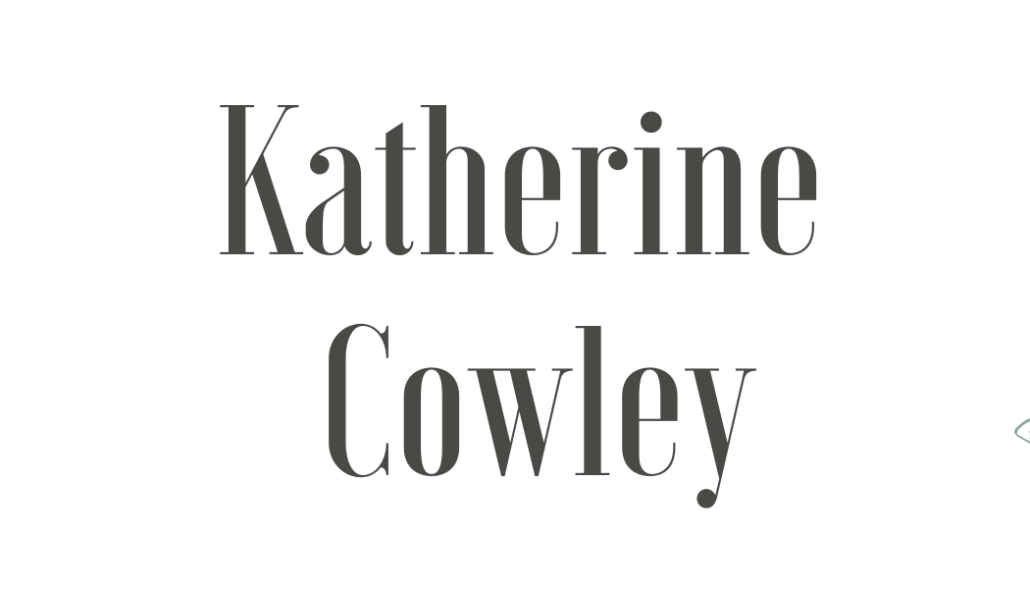
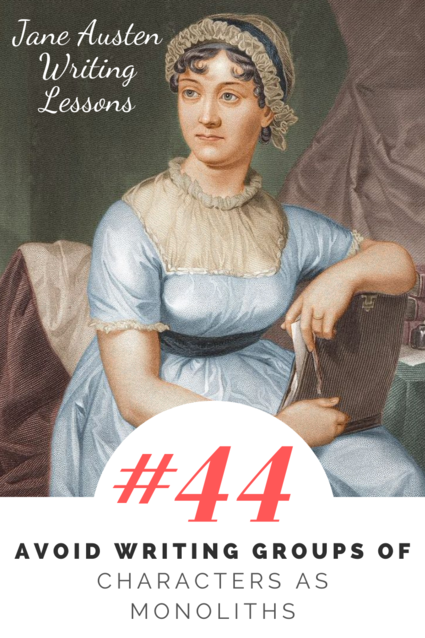


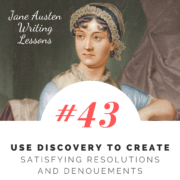
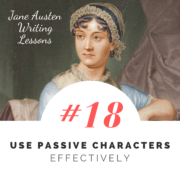
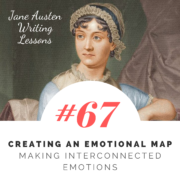
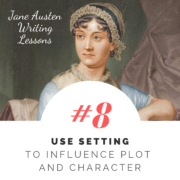
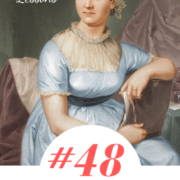
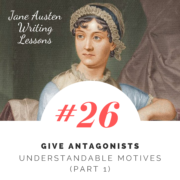


Leave a Reply
Want to join the discussion?Feel free to contribute!